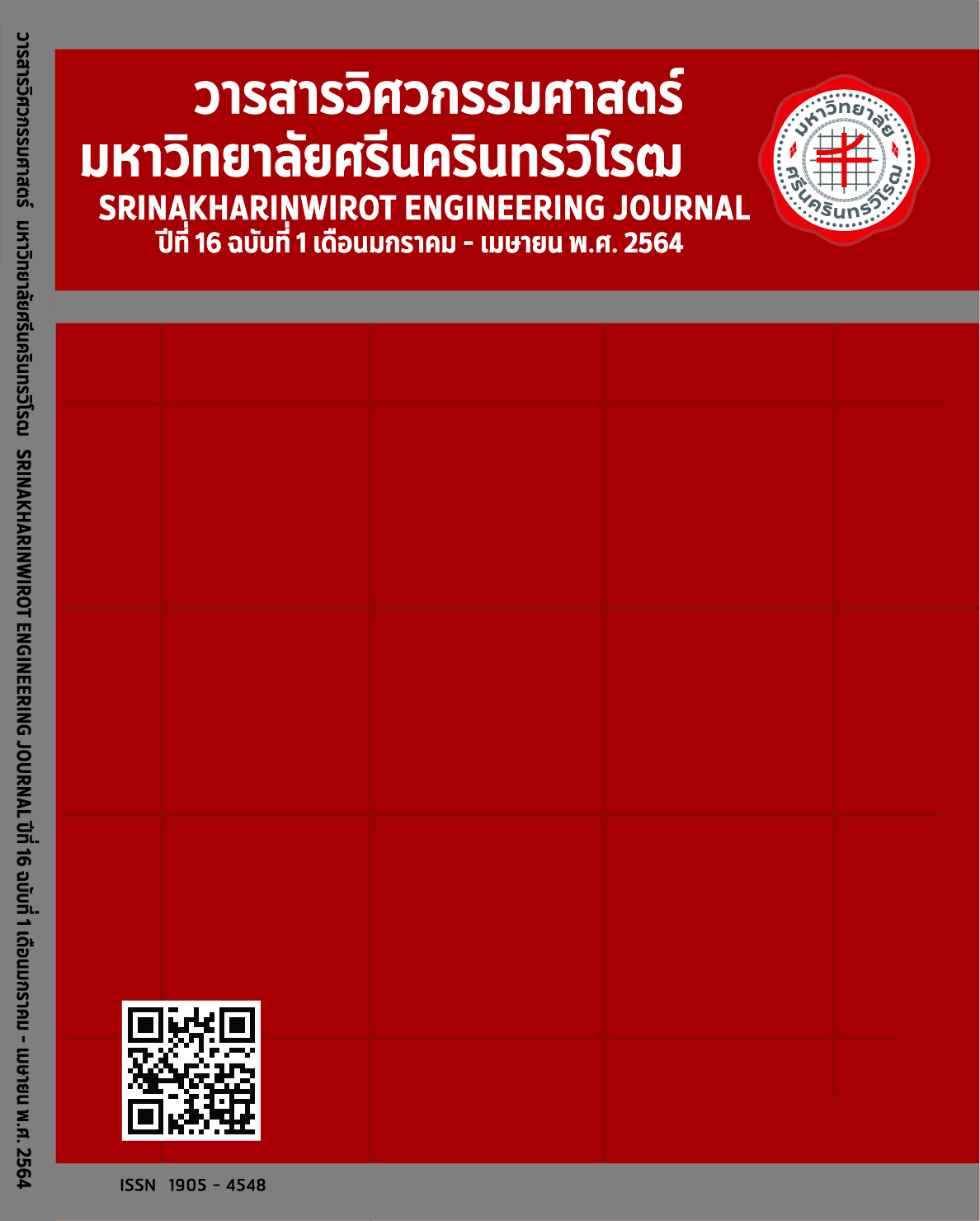The Maximum Power Point Tracking of Stand-alone Photovoltaic System Using Fuzzy Logic
Main Article Content
Abstract
This paper presents the maximum power point tracking of stand-alone photovoltaic system using fuzzy logic method. That will be applied in buck converter circuit for developing system to faster convergence Therefore, computer simulations are simulated in order to compare performance characteristics of perturbation and observation methods found that fuzzy logic method faster convergence than the perturbation and observation method state during the system initialization and the irradiance condition changes, so the system can effectively the maximum power of the photovoltaic system and therefore creating equipment that was designed. The results reviewed that fuzzy logic method could track rapid maximum power and accurate than with perturbation and observation method.
Article Details

This work is licensed under a Creative Commons Attribution-NonCommercial-NoDerivatives 4.0 International License.
Copyright belongs to Srinakharinwirot University Engineering Journal
References
T.J. Deceglie, M.G. Deceglie, I. Subedi, N.J. Podraza and I.M. Slauch, “Reducing operating temperature in photovoltaic modules,” IEEE J. Photovolt., Vol. 8, pp. 532-540, Oct. 2018.
P. Gaur, Y.P. Verma and P. Singh, “Maximum power point tracking algorithms for photovoltaic applications A comparative study,” in 2nd International Conference on Recent Advances in Engineering & Computational Sciences, Chandigarh, India, 2015, pp. 1-5.
P. Wongyai, K-N. Areerak, and K-L. Areerak, “Maximum power point tracking for stand-alone photovoltaic,” in The 37th Electrical Engineering Conference, Khon Kaen, Thailand, 2014, pp. 545-548.
A. Mohapatra, B. Nayak and C. Saiprakash, “Adaptive perturb & observe MPPT for PV system with experimental validation,” in IEEE International Conference on Sustainable Energy Technologies and systems, Bhubaneswar, India, 2019, pp. 257- 261.
M. Gunasekaran, V. Krishnamy, S. Selvam, D.J. Almakhles and N. Anglani, “An adaptive resistance perturbation based MPPT algorithm for photovoltaic application,” IEEE Access, Vol 8, pp. 196890-196901, Oct. 2020.
P. Premkumar and U. Subramaniam, “Improved perturb and observation maximum power point tracking technique for solar photovoltaic power generation systems,” IEEE Syst. J., pp.1-13, Jul. 2020.
C. Thueanpangthaim, P. Wongyai, K-N. Areerak, and K-L. Areerak, “The maximum power point tracking for stand-alone photovoltaic system using current based approach,” in 5th International Electrical Engineering Congress, Pattaya, Thailand, 2017, pp. 1-4.
A. Al Nabulsi and R. Dhaouadi, “Efficiency optimization of a DSP-based standalone PV system using fuzzy logic and dual-MPPT control,” IEEE Tran. Ind. Informat., Vol.8, pp. 573-584, Aug. 2012.
C. Panpean, K-N. Areerak and K-L. Areerak, “The control of para rubber rolling machine via fuzzy logic controller,” in The 39th Electrical Engineering Conference, Phetchaburi, Thailand, 2016, pp. 501-504.
H. Ying and F. Lin, “Online self-learning fuzzy discrete event systems,” IEEE Trans. Fuzzy Syst., Vol. 28, pp. 2185-2194, Sep. 2020.
L. Farah, A. Hussain, A. Kerrouche, C. Ieracitano, J. Ahmad and M. Mahmud, “A high-efficient fuzzy-based controller with high reduction input and membership functions for a grid-connected photovoltaic system,” IEEE Access, Vol. 8 pp. 163225-163237, Aug. 2020.
M. Aly and H. Rezk, “A differential evolution - based optimized fuzzy logic MPPT method for enhancing the maximum power extraction of proton exchange membrane fuel cell,” IEEE Access, Vol.8 pp. 172219-172232, Sep. 2020.


